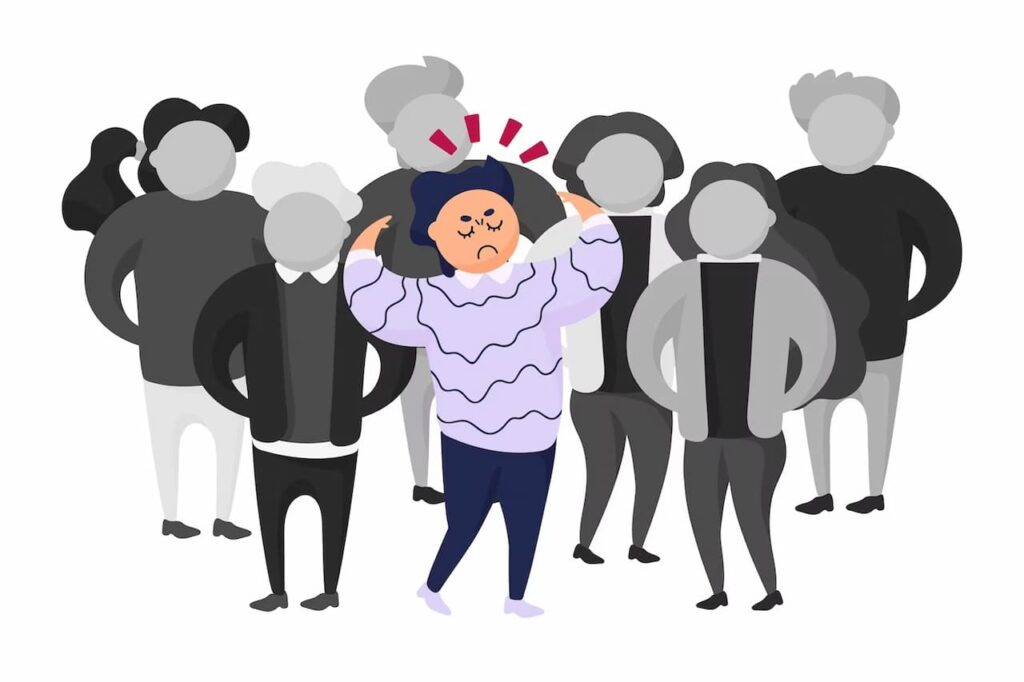Dialectical Behavior Therapy is a type of therapy which is a complete blend of Psychoanalytic and Behavior Therapy which is considered as a best therapy choice for the treatment of various mental health disorders. It was formulated by Linehan and it gives major importance to therapeutic relationship, client’s freedom, therapeutic environment, client’s past and factors of resistance and transference.
Table of Contents
ToggleDialectical Behavior Therapy can be seen as a modified version of Cognitive Behavior Therapy which also serves the purpose of teaching clients the importance of living in present moments, regulate their emotions, manage the stress in healthy ways and improve relationships with other people.

What Dialectical Behavior Therapy exactly is?
Dialectical Behavior Therapy was basically formulated to treat Borderline Personality Disorder (BPD) but after a period of time, this therapy proved to be effective for other psychological disorders as well. This therapy is used for mental health disorders like eating disorders, personality disorders, substance use disorders, sexual disorders, post-traumatic stress disorders and others in which clients have to learn how to regulate their emotions and avoid engaging in self-destructive behavior.
Dialectical Behavior Therapy uses behavioral and cognitive behavioral techniques in which exposure therapy is used to let the clients tolerate painful strong emotions and learn to deal with them without engaging in any kind of self-destructive behavior.
This therapy involves living in the present moments, accept reality without any judgment, seeing everything without any cognitive distortion, let go of anything that leads to suffering and pain and accept oneself and others with positivity. It is highly structured but is modified according to the demands and goals of the clients in the therapy session.
Therapist understands the possessed skills of the clients and set goals for the skills to be developed by the clients so to manage the problematic behaviors and enhances the quality of life. It is not a quick treatment it and of course it takes some time to show results as it involves clients learning new skills and fitting it in daily routine of life.
In addition to the regular therapy sessions, clients are supposed to do homework to keep working on the skills that they learnt in the therapy session and apply it in the daily course of life. Practicing these skills may be difficult for some people but it can be done with the support and guidance from the therapist.

Stages in Dialectical Behavior Therapy
Dialectical Behavior Therapy can be divided into 4 stages:
Stage 1 involves identifying self-destructive behaviors and addressing them first. Therapist and the client work together to get the self-destructive behavior under control and then client learn to manage it properly. All the skills that are required are learnt and developed in the therapy sessions by the client. Each and every issue is worked upon depending upon its seriousness and worseness. Some issues are worked upon again and again if they keep occurring in daily life.
Stage 2 involves reducing symptoms of client after the diagnosis has happened. If client’s quality of life is low, interpersonal relationships are hampered, have low emotional intelligence and can’t tolerate distress then it is necessary to quickly make a treatment plan in dialectical behavior therapy session. The intensity and pace at which client is learning the required skills are increased by the therapist and every problematic behavior is targeted in stage 2 as well. Main goal is to let the client come out of the unhealthy and negative mental space and enter into a healthy one.
Stage 3 involves focusing on issues of self-esteem and interpersonal relationships. In this stage, clients learns how to live. They start gaining control over their emotions and thoughts and increase their well-being. They define goals, learn to regulate emotions and develop healthy thought patterns which help them to live a normal life and manage the ups and downs of life.
Stage 4 helps clients to try getting more out of their lives and finding a purpose and a deeper meaning of their existence. They become able to go on the path towards personal growth and self-actualization. They start to experience happiness more and feel joy, freedom and positivity in life.

Techniques used in Dialectical Behavior Therapy
In order to effectively treat clients, these techniques have been developed and are main components of Dialectical Behavior Therapy.
1. Core Mindfulness
It can be defined as observing and becoming aware of the things happening at a given moment and doing one thing at a time with full attention to it. Mindfulness is noticing things without any distractions in the environment and distortions in the mind. It is a skill that is taught in Dialectical Behavior Therapy as it plays a crucial role in making life better. It can be done at anytime and anywhere as it just involves putting all attention on one thing and focus on it completely.
Distractions are common and natural to come but a mindful person will be able to bring back attention from the distraction to the important thing being noticed. First thing that is taught in the therapy session to the client is to be regular in achieving mindfulness and practice it a lot. Relaxing oneself and expanding attention will help in being aware of oneself and one’s environment and achieving goals as well.

2. Distress Tolerance
A client who is coming to seek dialectical behavior therapy is definitely a person who is not able to tolerate stress in life. But this skill of distress tolerance helps client to survive an immediate crisis without making it worse than it is. They manage stress of their life efficiently as well as cope with their unwanted emotions that bring distress. Some of the distress tolerance skills are:
- Relaxation techniques
- Weighing the pros and cons
- Accepting the reality
- The STOP Skills
- Problem solving and decision making techniques
- IMPROVE the moment (imagery, meaning, prayer, relaxation, one thing at a time, vacation and encouragement)
These skills help the client to avoid engaging in self-destructive behaviors such as cutting, burning, using alcohol or drugs, running away from the distress causing situation and harming others in impulsiveness. It prepares the client to experience intense emotions and cope up with them with a positive and healthy approach. These skills can be taught through worksheets and homework, audio recordings, books, talk therapy, etc.

3. Interpersonal Effectiveness
In this technique, the aim is to improve the relationships with significant others, build new relationships with other people and end toxic and unhealthy relationship with negative people. All the changes are done in one’s social circle to improve the interpersonal effectiveness in life. It is all done to bring homeostasis in relationships and accept things as they are. It includes getting people to meet needs and achieve goals. It is very important to have healthy relationships in life and taking care of them as it somehow determines one’s self-worth and self-respect.
The following skills are used in achieving interpersonal effectiveness in dialectical behavior therapy:
1. THINK
- Think about the situation from other person’s perspective
- Have empathy for others
- Do Interpretations of the other person’s behavior
- Notice others always
- Show some Kindness in your response always
2. FAST
- Always be Fair to yourself and others
- Apologize only when it is your mistake
- Stick to your values and stand for what you believe in
- Always be Truthful and honest
3. GIVE
- Be Gentle in your approach
- Be Interested in others
- Validate what others said and what you understood
- Be in and Easy manner always and present yourself as a relaxed person
4. DEAR MAN
- Describe any situation in a simple manner
- Express what you think and feel
- Assert your opinion always
- Reinforce what happens in your favor
- Always be Mindful
- Appear Confident in front of others
- Negotiate when you don’t like something

4. Emotion Regulation
The first step is to identify the emotions and naming them by giving them a label. Therapist helps the client to develop a positive outlook in order to balance out the emotions of the client. The client is taught to let go of anything that is painful by becoming mindful of it and then removing it from the life. And then client is guided towards learning responses opposite to earlier ones as earlier they were unhealthy and now client has to learn healthy reactions to any stimulus in life. When negative and toxic emotions are recognized and removed from life, then it helps in reducing emotional vulnerability and develop positive outlook in life.

How Dialectical Behavior Therapy can help the client?
Dialectical Behavior Therapy focuses on client’s past experiences and the associated traumas and symptoms. The whole past is discussed which gives the feeling of catharsis and is therapeutic for the client. Also, it helps the therapist to understand and analyze the emotions, thinking and personality structure of the client so that it will be used in making intervention strategies. Mindfulness is also increased in Dialectical Behavior Therapy which helps the client to increase one’s quality of life. It also helps in building self-esteem levels of the client and better relationships with other people. Dialectical Behavior Therapy gives therapist an opportunity to understand the complexity of the client and make clients aware of their strengths and weaknesses.
Dialectical Behavior Therapy also contributes in developing communication skills, healthy coping skills, good interpersonal relationships and positive thinking. According to researches, Dialectical Behavior Therapy along with neurofeedback treatment is very effective to correct unhealthy thought patterns and enhance emotion regulation. Through Dialectical Behavior Therapy, clients can develop self-worth and self-respect which is essential for one’s personal development. Also, in the therapy session, therapist provides a safe and supportive environment where clients can learn skills without any hesitation.

Visit Medavas for Dialectical Behavior Therapy by our Professionals
If you want to seek Dialectical Behavior Therapy or are a little confused about whether it is right for you or not, then the best decision would be to have a therapy session and check it by yourself. If you or any loved one of yours want to benefit from Dialectical Behavior Therapy then at Medavas you can avail the opportunity of getting therapy from trained and experienced psychologists/therapists. They will evaluate your symptoms; suggest treatment course and therapy goals.
At Medavas, you get the freedom to choose the therapist as per your choice and select the time, language and mode of session as per your convenience. You can trust our mental health professionals as they are highly efficient in their field. So, hurry up, quickly book your session and avail the benefits of Dialectical Behavior Therapy at Medavas.
Frequently Asked Questions (FAQs) for Dialectical Behavior Therapy
In which settings Dialectical Behavior Therapy can be given?
It is a proved effective therapy for several mental health disorders and can be given in individual setting (only one client and one therapist), group setting (more than one client and a therapist) and online setting (through chats, phone calls or video calls).
Is Dialectical Behavior Therapy Effective?
Dialectical Behavior Therapy is really effective for people who want to develop coping skills and efficiently manage their emotions and express strong emotions. It is effective doesn’t matter the age, gender, class, race, and sexual orientation. It is highly used for Borderline Personality Disorder and suicidal tendencies as it uses intervention skills which are best treatment choices.
What all problems Dialectical Behavior Therapy can help with?
It can be used for psychological disorders like bipolar personality disorder, depression, mood disorders, sexual disorders, eating disorders, sleep disorders, attention- deficit hyperactivity disorder, obsessive-compulsive disorder, suicidal tendencies, post-traumatic stress disorder and substance use disorder.